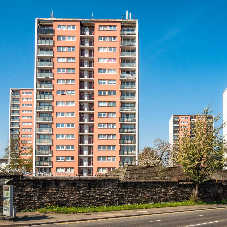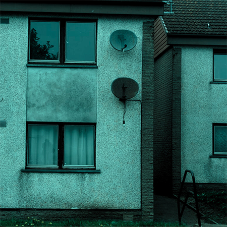It’s not high on anyone’s list of priorities when choosing a new home – the door. But really, the door plays a rather pivotal role in the house! You open it to enter you walk through it and you close it behind you and you lock it to keep your possessions safe. Back in the day, you could estimate how wealthy someone was based on how fancy their front door was – and whereas we have moved on from such things, there’s really no reason to have anything but a fantastic front door in your house.
Buying a new front door for your property is something you should hopefully only need to do once, so you best choose wisely. Today, there are so many different replacement doors available, and one of the newest kids on the block are composite doors. In this blog, we take a look at the pros and cons of these.
Until the development of composite doors, the UK door market was completely dominated by a wealth of UPVC and wooden entrance doors – and lately, it has become the alternative to the aforementioned. Composite doors aren’t made from a single substance, instead they’re made using a combination of material like PVC, wood, muffled foam and glass reinforced plastic (GRP). In most cases, they’re made from fiberglass.
Great thing about composite doors is that they need little to no maintenance. Frequent exposure to wind, rain, sun, snow and ice can leave traditional doors looking significantly dishevelled, and only a time-consuming amount of upkeep will get them back into a better condition. Not so with composite doors! You will never have to repaint the door, sand it, varnish it or anything requiring any more elbow grease than a simple wipe with a wet cloth.
Composite doors are great for longevity, too. The average lifespan of a composite door is 30 years (longer in many cases) as the materials used to build the door in the first place are made to last. And because they’re so long-lasting, they’re also really strong, which makes for one secure door! In general, the doors are considerably thick, so anyone who attempts to force it when locked is likely to come away with a very sore shoulder.
What about aesthetics, then? Well, they’re not a worry really - people seeing a composite door for the first time often mistake it for a timber door. That’s because a composite door is partly manufactured from wood and that’s why you see the same patterns and contours that you’d normally find in a timber door. Of course, there’s no substitute for the real thing and although composite doors can mimic wood, they still can’t boast of the natural wood texture. Overall, wood is the more attractive material – but it’s not all about looks, right?
Thermal efficiency-wise, composite doors are up to six times more energy productive than other types of doors and they will help you keep your home energy efficient - the composite door gives your home the highest insulation available and high acoustic performance for noise reduction. And the good news is, this should help you lower your heating bills.
What about cost, then? How much are composite doors? Well, a lot, apparently. While it is difficult to find many downsides to a composite door, the price of buying one may prove a stumbling block for some people. Composite doors definitely are more expensive than a UPVC or timber doors, but when you add all the pros together, they might just be worth the investment.
They’re a long-life product that helps you keep your house safe all the while reducing your heating bill – and without you having to do any real maintenance.
What do you think? Should you invest in a composite door? Join the conversation on our Linkedin post or or check out our Residential Doors hub!
Related Blog Articles



crop192.png)












